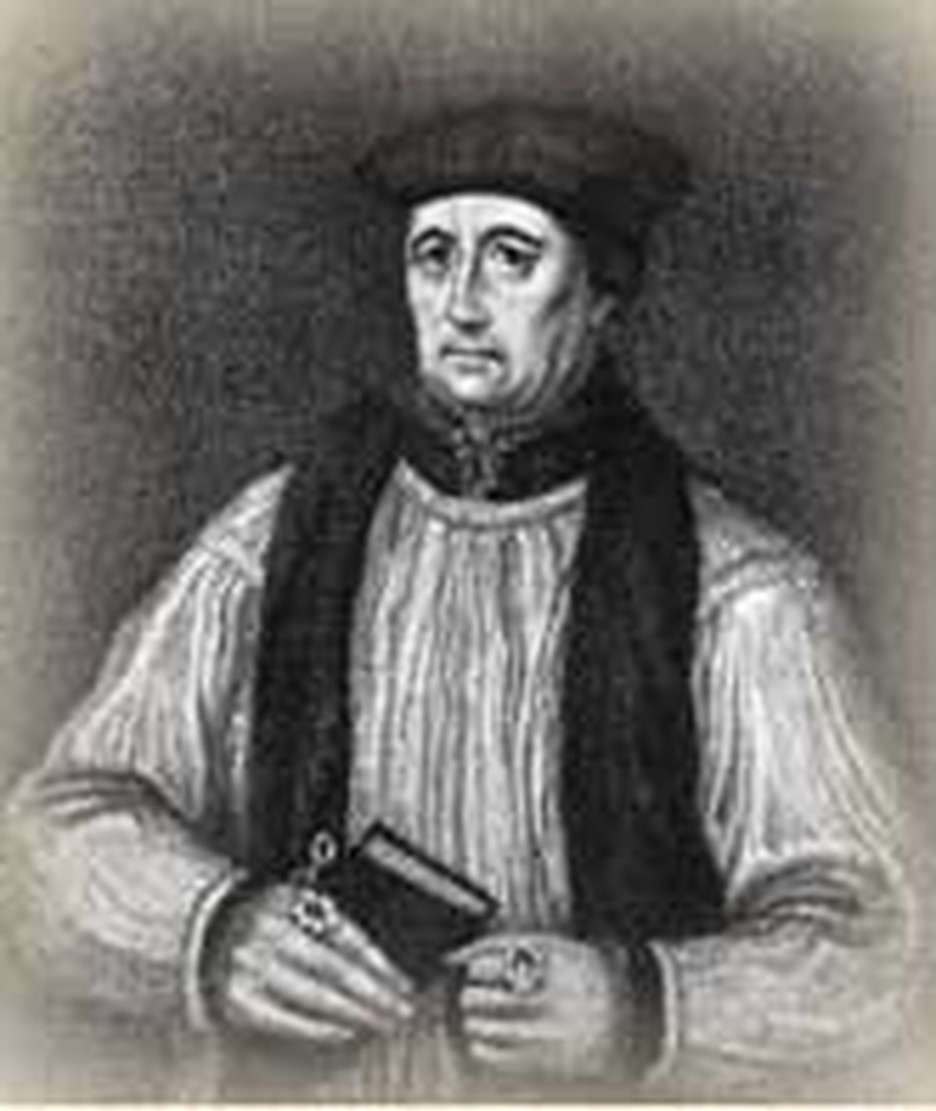
When Queen Mary Tudor came to the English throne in 1553, everyone expected she would restore the Roman Church to a nation which had become Protestant. Fearing brutality, some clergymen fled. One who stayed in England was John Philpot, archdeacon of Winchester. Assured that he could speak freely, he debated Roman apologists in a convocation.
Philpot was a man of great learning, with knowledge not only of the Bible but of its languages, especially Hebrew. To persuade him to recant his Protestant beliefs would have been a signal victory. However, contemporaries say Philpot more than held his own in the debates.
Almost at once, his words were turned against him. He was arrested as a heretic and bullied by Story, Bonner and other agents of the queen. Bishop Gardiner, one of Mary's leading persecutors, had reason to resent Protestants. Gardiner had been bishop of Winchester until deposed by the Protestant king, Edward VI.
Philpot was sometimes held in Bishop Bonner's coal house and sometimes in a tower. One day he might be loaded with chains, the next placed in the stocks. His opponents vowed openly to bring him to the stake, but at the same time sought to persuade him to recant his heresies. John Philpot held fast to his convictions through fourteen examinations.
Eighteen months passed in this imprisonment. There was no sign his resolve would weaken. Philpot managed to preserve secret notes about his hearings. Much of this material was later printed by John Foxe in his Actes and Monuments (better known as Foxe's Book of Martyrs).
On December 16th, Bishop Bonner passed the death sentence on his victim. Philpot was taken to Newgate and loaded with so many chains by the prison keeper that he had to send a servant to ask the sheriff to relieve him. The sheriff ordered the extra chains removed. On the 17th, while he ate supper, Philpot was told he must die the next day. To this he replied joyfully, "I am ready: God grant me strength and a joyful resurrection."
Thanking God that he was counted worthy to suffer for truth, he went into his room. Did his mind run back to his participated in the examination and burning of the deluded Joan of Kent?
We do not know. However, on this day, December 18, 1555, he met the sheriff's men joyfully at eight and proceeded to the stake in Smithfield. The path was muddy and the sheriff's men offered to carry him. He refused, saying, "I am content to go to my journey's end on foot."
He knelt when he came to the place of execution and kissed the stake. Then he recited psalms 106, 107 and 108, was chained to the stake, and died in the flame that mounted around his body.
Bibliography:
- Foxe, John. Book of Martyrs. Various editions available.
- "Philpot, John." The Oxford Dictionary of the Christian Church. Edited by F. L. Cross and E. A. Livingstone. Oxford, 1997.
- Various internet articles.
Last updated May, 2007.







